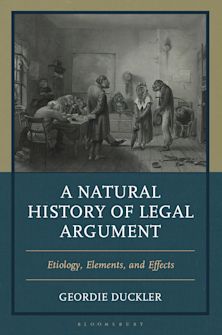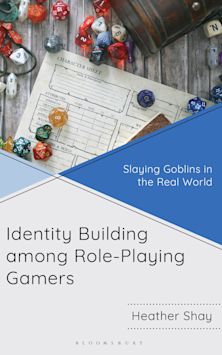- Home
- ACADEMIC
- Sociology
- Sociology - Other
- Let Nobody Turn Us Around
Let Nobody Turn Us Around
Voices of Resistance, Reform, and Renewal
Manning Marable (Anthology Editor) , Leith Mullings (Anthology Editor) , Mumia Abu-Jamal (Contributor) , Richard Allen (Contributor) , Molefi Kete Asante (Contributor) , James Baldwin (Contributor) , Amiri Baraka (Contributor) , Edward Wilmot Blyden (Contributor) , Cyril V. Briggs (Contributor) , Stokely Carmichael (Contributor) , Frederick Douglass (Contributor) , William Edward Burghardt Du Bois (Contributor) , Paul Laurence Dunbar (Contributor) , Alice Moore Dunbar-Nelson (Contributor) , Olaudah Equiano (Contributor) , Louis Farrakhan (Contributor) , Henry Highland Garnet (Contributor) , Fannie Lou Hamer (Contributor) , Frances Ellen Watkins Harper (Contributor) , bell hooks (Contributor) , Langston Hughes (Contributor) , James Weldon Johnson (Contributor) , Martin Luther King Jr. (Contributor) , Audre Lorde (Contributor) , Malcolm X (Contributor) , Thurgood Marshall (Contributor) , Claude McKay (Contributor) , Elijah Muhammad (Contributor) , Huey P. Newton (Contributor) , Solomon Northrup (Contributor) , Rosa Parks (Contributor) , Adam Clayton Powell Jr. (Contributor) , A Philip Randolph (Contributor) , Paul Robeson (Contributor) , Jo Ann Robinson (Contributor) , Josephine St. Pierre Ruffin (Contributor) , Bayard Rustin (Contributor) , Maria W. Stewart (Contributor) , Mary Church Terell (Contributor) , Sojourner Truth (Contributor) , Nat Turner (Contributor) , David Walker (Contributor) , Booker T. Washington (Contributor) , Harold Washington (Contributor) , Ida B. Wells-Barnett (Contributor) , Roy Wilkins (Contributor) , William Julius Wilson (Contributor)
- Textbook
Let Nobody Turn Us Around
Voices of Resistance, Reform, and Renewal
Manning Marable (Anthology Editor) , Leith Mullings (Anthology Editor) , Mumia Abu-Jamal (Contributor) , Richard Allen (Contributor) , Molefi Kete Asante (Contributor) , James Baldwin (Contributor) , Amiri Baraka (Contributor) , Edward Wilmot Blyden (Contributor) , Cyril V. Briggs (Contributor) , Stokely Carmichael (Contributor) , Frederick Douglass (Contributor) , William Edward Burghardt Du Bois (Contributor) , Paul Laurence Dunbar (Contributor) , Alice Moore Dunbar-Nelson (Contributor) , Olaudah Equiano (Contributor) , Louis Farrakhan (Contributor) , Henry Highland Garnet (Contributor) , Fannie Lou Hamer (Contributor) , Frances Ellen Watkins Harper (Contributor) , bell hooks (Contributor) , Langston Hughes (Contributor) , James Weldon Johnson (Contributor) , Martin Luther King Jr. (Contributor) , Audre Lorde (Contributor) , Malcolm X (Contributor) , Thurgood Marshall (Contributor) , Claude McKay (Contributor) , Elijah Muhammad (Contributor) , Huey P. Newton (Contributor) , Solomon Northrup (Contributor) , Rosa Parks (Contributor) , Adam Clayton Powell Jr. (Contributor) , A Philip Randolph (Contributor) , Paul Robeson (Contributor) , Jo Ann Robinson (Contributor) , Josephine St. Pierre Ruffin (Contributor) , Bayard Rustin (Contributor) , Maria W. Stewart (Contributor) , Mary Church Terell (Contributor) , Sojourner Truth (Contributor) , Nat Turner (Contributor) , David Walker (Contributor) , Booker T. Washington (Contributor) , Harold Washington (Contributor) , Ida B. Wells-Barnett (Contributor) , Roy Wilkins (Contributor) , William Julius Wilson (Contributor)
- Textbook
Please note that this product is not available for purchase from Bloomsbury websites.
Buy from Bloomsbury eTextBooks
You are now leaving the Bloomsbury Publishing website. Your eBook purchase will be with our partner https://www.vitalsource.com.
Your credit card statement will show this purchase originating from VitalSource Technologies. They will also provide any technical assistance you might require.
You must sign in to add this item to your wishlist. Please sign in or create an account
Description
This anthology of black writers traces the evolution of African-American perspectives throughout American history, from the early years of slavery to the end of the 20th century. The essays, manifestos, interviews, and documents assembled here, contextualized with critical commentaries from Marable and Mullings, introduce the reader to the character and important controversies of each period of black history. The selections represent a broad spectrum of ideology. Conservative, radical, nationalistic, and integrationist approaches can be found in almost every period, yet there have been striking shifts in the evolution of social thought and activism. The editors judiciously illustrate how both continuity and change affected the African-American community in terms of its internal divisions, class structure, migration, social problems, leadership, and protest movements. They also show how gender, spirituality, literature, music, and connections to Africa and the Caribbean played a prominent role in black life and history. To view the companion study guide, please click here http://www.rowmanlittlefield.com/ISBN/0742527093
Table of Contents
Chapter 3 "The Interesting Nature of the Life of Olaudah Equiano," Olaudah Equiano, 1789
Part 3 Foundations: Slavery and Abolitionism, 1789-1861
Chapter 4 "Thus Doth Ethiopia Stretch Forth Her Hand From Slavery, to Freedom and Equality," Prince Hall, 1797
Chapter 5 The Founding of the African Methodist Episcopal Church, Richard Allen, 1816
Chapter 6 David Walker's "Appeal", 1829-1830
Chapter 7 The Statement of Nat Turner, 1831
Chapter 8 Slaves Are Prohibited to Read and Write by Law, 1831
Chapter 9 "What If I Am A Woman?" Maria W. Stewart, 1833
Chapter 10 A Slave Denied the Rights to Marry, Letter of Milo Thompson, Slave, 1834
Chapter 11 Solomon Northrup Describes a New Orleans Slave Auction, 1841
Chapter 12 Cinque and the Amistad Revolt, 1841
Chapter 13 "Let Your Motto Be Resistance!," Henry Highland Garner, 1843
Chapter 14 "A'n't I a Woman?" Sojourner Truth, 1851
Chapter 15 Frederick Douglass: What to the Slave is the Fourth of July, 1852
Chapter 18 The Spirituals: Go down Moses and Didn't My Lord Deliver Daniel
Chapter 19 "No Rights That a White Man is Bound to Respect": The Dred Scott Case and Its Aftermath
Chapter 20 "Whenever the Colored Man Is Elevated, It Will Be by His Own Exertions," John S. Rock, 1858
Part 21 Reconstruction and Reaction: The Aftermath of Slavery and the Dawn of Segregation, 1891-1915
Chapter 22 Frederick Douglass: What the Black Man Wants, 1865
Chapter 23 Frances Ellen Watkins Harper, Pioneering Black Feminist
Chapter 23 Henry McNeal Turner, Black Christian Nationalist
Part 24 Black Urban Workers During Reconstruction
Chapter 24 "Labor and Conflict Are in Deadly Conflict" T. Thomas Fortune, 1886
Chapter 25 Edward Wilmot Blyden and African Disapora
Chapter 26 Paul Laurence Dunbar: I Know Why the Caged Bird Sings
Part 27 From Plantation to Ghetto: The Great Migration, Harlem Renaissance, and World War, 1915-1954
Chapter 28 Booker T. Washington and the Politics of Accommodation
Chapter 29 Ida B. Wells-Barnett, Crusader for Justice
Chapter 30 William Edward Burghardt Du Bois
Chapter 31 The Niagra Movement, 1905
Chapter 32 Black Conflict Over World War I
Chapter 33 Black Bolsheviks: Cyril V. Briggs and Claude McKay
Chapter 34 Langston Hughes and the Harlem Renaissance
Chapter 35 Alice Moore Dunbar-Nelson, The Negro Woman and the Ballot, 1927
Chapter 36 James Weldon Johnson, Harlem in the 1920s
Chapter 37 Black Workers in the Great Depression
Chapter 38 The Scottsboro Trials, 1930
Chapter 39 Adam Clayton Powell, Jr. and the Fight for Black Employment in Harlem
Chapter 40 Black Women Workers During the Great Depression
Chapter 41 Southern Negro Youth Conference, 1939
Chapter 42 A. Philip Randolph and the Negro March on Washington Movement, 1941
Chapter 43 Paul Robeson: The Negro Artist Looks Ahead
Chapter 44 Thurgood Marshall, The Brown Decision and the Struggle for School Desegregation
Chapter 45 Rosa Parks, Jo Ann Robinson, and the Montgomery Bus Boycott, 1955-1956
Chapter 46 Roy Wilkins and the NAACP
Chapter 47 Student Nonviolent Coordinating Committee and the Sit-in Movement, 1960
Chapter 48 Freedom Songs, 1960s
Chapter 49 Fannie Lou Hamer: The Special Plight and the Role of Black Women
Chapter 50 Elijah Muhammad and the Nation of Islam
Chapter 51 Malcolm X and the Revolutionary Black Nationalism
Chapter 52 Martin Luther King, Jr.: To Atone For Our Sins and Errors in Vietnam, 1967
Part 53 We Shall Overcome: The Second Reconstruction, 1954-1975
Chapter 54 "We Need Group-Centered Leadership," Ella Baker
Chapter 55 Martin Luther King, Jr., and Nonviolence
Chapter 56 "The Revolution Is at Hand," John R. Lewis, 1963
Chapter 57 "The Salvation of American Negroes Lies in Socialism," W. E. B. Du Bois
Chapter 58 "SNCC Position Paper: Women in the Movement"
Chapter 59 Black Power
Chapter 60 "CORE Endorses Black Power," Floyd McKissick, 1967
Chapter 61 "The People Have to Have the Power," Fred Hampton
Chapter 62 The National Black Political Convention, Gary, Indiana, March, 1972
Chapter 63 "My Sight is Gone But My Vision Remains," Henry Winston
Chapter 64 "We Would Have to Fight the World," Henry Winston
Chapter 65 "Women in Prison: How We Are," Assata Shakur, 1978
Chapter 66 The Movement Against Apartheid: Jesse Jackson and Randall Robinson
Chapter 67 "Keep Hope Alive," Jesse Jackson, 1988
Chapter 68 The Anita Hill-Clarence Thomas Controversy, 1991
Chapter 69 "Black Anti-Semitism," Henry Louis Gates, Jr., 1992
Chapter 70 "Crime-Causes and Cures," Jarvis Tyner, 1994
Chapter 71 "Let Justice Roll Down Like Waters," African-American Prisoners in Sing Sing, 1998
Part 72 The Future in the Present: Contemporary African-American Thought, 1975 to the Present
Chapter 73 Huey P. Newton and the Black Panther Party for Self-defense
Chapter 74 Angela Y. Davis, I Am a Revolutionary Black Woman, 1970
Chapter 75 The League of Revolutionary Black Workers: Out Thing is DRUM.
Chapter 76 Attica: The Fury of Those Who are Oppressed, 1971
Chapter 77 Amiri Baraka: There is No Revolution without the People, 1972
Chapter 78 Combahee River Collective Statement, 1977
Chapter 79 Harold Washington: It's Our Turn, 1983
Chapter 80 Audre Lorde, I Am You Sister, 1984
Chapter 81 Bell Hooks, Shaping Feminist Theory
Chapter 82 William Julius Wilson, The Ghetto Underclass, 1987
Chapter 83 Molefi Asante, Afrocentrism, 1991
Chapter 84 Cornel West, Race Matters
Chapter 85 Louis Farrakhan, The Million Man March, 1995
Chapter 86 Mumia Abu-Jamal, A Voice from Death Row
Chapter 87 Black Radical Congress, 1998
Chapter 88 "The Democratic Idea is Humanity" Alexander Crummell, 1888
Chapter 89 "A Voice From the South" Anna Julia Cooper, 1892
Chapter 90 The National Association of Colored Women: Mary Church Terrell and Josephine St. Pierre Ruffin
Chapter 91 William Monroe Trotter and the Boston Guardian
Chapter 92 Race and the Southern Worker
Chapter 93 Hubert Henry Harrison, Black Revolutionary Nationalist
Chapter 94 "If We Must Die," Claude McKay, 1919
Chapter 95 Marcus Garvey and the Universal Negro Improvement Association
Chapter 96 "Women As Leaders," Amy Euphemia Jacques Garvey, 1925
Chapter 97 "You Cannot Kill the Working Class," Angelo Herndon, 1933
Chapter 98 Hosea Hudson, Black Communist Activist
Chapter 99 "Breaking the Bars to Brotherhood," Mary McLeod Bethune, 1935
Chapter 100 Charles Hamilton Houston and the War Effort among African Americans, 1944
Chapter 101 "An End to the Neglect of the Problems of the Negro Woman!" Claudia Jones, 1949
Product details
| Published | Jan 24 2003 |
|---|---|
| Format | Ebook (Epub & Mobi) |
| Edition | 1st |
| Extent | 698 |
| ISBN | 9781461638810 |
| Imprint | Rowman & Littlefield Publishers |
| Publisher | Bloomsbury Publishing |
About the contributors
Reviews
-
What is unique, startling, and most significant about this book is that all the sources are primary, and all are the voices of African Americans themselves articulating their experiences in an effort to understand and cope with their circumstances in this country over several centuries and how to change them. This rich, highly readable collection illuminates a broad spectrum of ideology, as well as how both continuity and change have affected the black community in the United States. . . . An impressive combination of serious scholarship with accessible writing, this is a book that none who purport to understand this nation can afford to ignore.
Michigan Citizen
-
Manning Marable and Leith Mullings's text gives us a powerful late twentieth-century interpretation and compilation of exemplary voices in the black past and present. Their progressive vision is a breath of fresh air and badly needed in these times.
Cornel West, Union Theological Seminary
-
This anthology packs in one volume the sterling essence of our vast intellectual and political heritage. This is a wonderful teaching tool; more than this, it is a book that none who purport to understand this nation can afford to ignore.
Gerald Horne, University of North Carolina, Chapel Hill
-
A remarkably broad compilation of the signal primary sources through which black people articulated both their always shifting and always various definitions of what, precisely, a black identity is, as well as the most efficacious methods through which to achieve our freedom. Marable and Mullings have produced a work indispensable to the field of African-American Studies.
Henry Louis Gates Jr., Harvard University
-
Conveys the essence of the struggle to achieve freedom by African-American men and women. The work is as dramatic as is the struggle itself.
Herbert Aptheker
-
There is no comparable volume that can match the comprehensive coverage in this first, single-volume documentary history of black thought. . . . Essential reading.
George M. Fredrickson, Stanford University


































